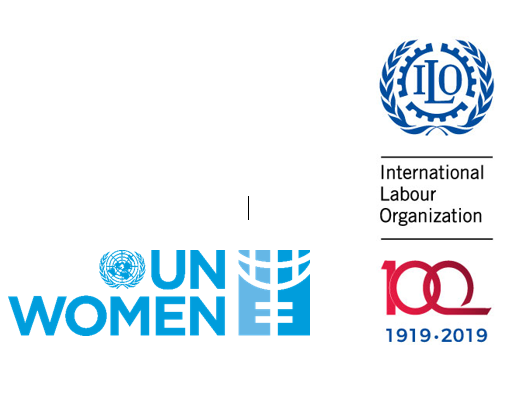Women working in the hospitality sector - such as in hotels, restaurants, bars, casinos and tourism – often face risks of violence and harassment. As with other workers in predominantly non-standard forms of employment, where risk factors for violence and harassment are present, many do not make complaints for fear of losing their jobs. Factors such as wage-based tipping, alcohol consumption and the notion that the “customer is always right” contribute to a heightened risk of sexual harassment by third parties (Nordic Hotel, Restaurant, Catering and Tourism Union, 2015). In addition, long working hours, often during the night, make travel to and from work dangerous.
|
Women in the hospitality sector |
|
Chicago, US Hospitality sector campaign: “Hands Off, Pants On”[1] In response to widespread reports of sexual harassment and sexual assault in the hospitality sector, the union UNITE HERE in Chicago started a campaign called “Hands off, pants on”. The campaign included advocacy to stop sexual harassment perpetrated against women who serve the drinks at casinos and clean hotel rooms. The campaign successfully led to the City of Chicago passing legislation in 2017 requiring hotel employers to provide housekeeping staff with panic buttons. In addition, the legislation includes protection of hotel workers from retaliation when they report sexual violence by guests and requires hotels to implement anti-sexual harassment policies. |
|
International Union of Food, Agricultural, Hotel, Restaurant, Catering, Tobacco and Allied Workers' Associations (IUF) global week of action to end exploitation and violence against hotel housekeepers Every year the IUF holds a global week of action to end exploitation and violence against hotel housekeepers. The global week of action helps to raise awareness about the need for workplace policies and decent work. It started in December 2014 when hotel housekeepers in more than 25 countries around the world highlighted their situation and demanded a safe and secure working environment from the global hotel industry. As part of the global campaign, in the Philippines, the IUF-affiliated National Union of Workers in Hotel Restaurant and Allied Industries won a government administrative order in 2016 for the inspection of hotels for non-compliance with national labour and health and safety regulations (IUF, 2016). IUF affiliates in French-speaking countries in West Africa joined the 2nd Global Week of Action in June 2016, with a number of workshops organized to highlight stressful and dangerous working conditions for both hotel housekeepers and valets. |
|
Swedish Hotel and Restaurant Workers Union (HRF) (ILO, 2017e) The HRF represents workers in the hotel and restaurant sector, in which women are often on short-term, temporary contacts. As survey evidence shows the great extent of sexual harassment in the sector, the union has campaigned for secure jobs, as they found a strong connection between high staff turnover, poor working conditions, and being at risk of violence and harassment. Many women workers do not report violations of their rights and violence as they are afraid of losing their jobs. The union has trained local and regional safety representatives, giving them more tools to recognize and deal with sexual harassment in their workplaces, and have pressed for health and safety policies, and clear rules and guidelines to deal with the problem. When the HRF began working on sexual harassment issues, they initially encountered resistance from some employers, but, over time, employers realized the potential benefits of addressing the problem, including improvements to companies’ reputation. Moreover, social dialogue with the national employers’ organization, Visita (Swedish Association of Hospitality Employers), has led to health and safety training on workplace problems, including sexual harassment and the agreement of policies. Additionally, under the Anti-Discrimination Act, employers and trade unions are jointly responsible for preventing discrimination in the labour market. |
|
Women Workers’ Safety in the Beer Industry in Cambodia (CARE International, 2013) In order to change dangerous social norms underpinning violence against women beer promoters in Cambodia, CARE International has worked with beer brands and local brewers, government departments, women’s groups, and those managing the informal outlets selling the beer. Their goal was to examine what effects workplace pressures were having on beer promoters working in the capital city, Phnom Penh. This involved a partnership with Heineken through the “Selling Beer Safely” project. Six major brewers (Cambodian Brewery, Cambrew, Asia?Pacific Breweries, Heineken, Guinness and Carlsberg) subsequently joined together to establish the Beer Selling Industry in Cambodia in partnership with the Ministry of Labour, in which they prioritised providing fixed salaries for beer promoters and addressing rights and safety issues. This led to a Code of Conduct being agreed for BSIC’s beer company members that includes: supervision structures and grievance procedures; policies and a zero-tolerance approach towards harassment; and annual and independent monitoring of compliance and impact. CARE also helped establish the Solidarity Association of Beer Promoters in Cambodia, which brings together beer promoters for training and behaviour change, including ending gender-based violence. The project, Promoting Safety of Women Workers in the Beer Industry” (PSWWBI), brings together ministerial authorities, civil society, the beer industry and women beer promoters with the goal of creating a safer and more respectful working environment for beer promoters in Cambodia, and one that is free from all forms of gender-based violence. The evaluation of the model suggests that it could be extended to other industries where women workers are at risk of sexual harassment, including garment factories, tourism and hospitality or other segments of the entertainment industry. |
